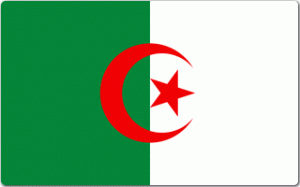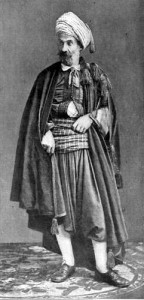In the 1960s, history was rewritten and modified in Algeria. How, you might ask? Professor Sarah Stein looked into just this question with her presentation and research project Decolonization and the Jews of the Sahara: National Myth Making in Israel, Algeria and France. Her research took her to the French colonization of Algeria starting in the mid-1800s, and followed the lives of the Jewish communities there into the present day. The issue that has raised concerns in the past decade has to do with the nationality and citizenship status of Algerian Jews living in France.
When the French colonized northern Algeria, they granted French citizenship in 1877 to the Jewish communities living there. However, when France later occupied southern Algeria, they did not immediately grant citizenship to the Saharan Jews until much later. The French differentiated between northern and southern Jews for about 80 years.
When the Saharan Jews were finally given citizenship status, it was discovered that their rabbi had not been keeping adequate tabs on the community. Records regarding births, deaths, and marriages were missing and had to be quickly compiled. At around this same time, a civil war was going on in Algeria, and the Jewish communities were in a hurry to leave. Since the compilation of accurate information was taking too much time, the French government decided that it would be better for the Jews to simply forge their identifications to make the process go more quickly and smoothly. Of course, when the option to forge documents came up, a number of people wanted to change their information. Some individuals wanted to change their name, some changed their ages to make themselves appear younger, and a whole slew of misinformation was created in this time period. In addition, Israel sent over an emissary to register Jews for Israeli citizenship. His efforts were cut short and lost after he caught wind of an assassination attempt.
All this misinformation has created problems that have lasted until the present day. Because history had been rewritten, Algerians who have moved to France are encountering difficulties in becoming true citizens. There have been attempts by France and Israel to procure the original historical documents, but to no avail so far. In the end, it may be archaeology that can resolve these issues. History can be rewritten to represent an individual’s desires, but the science of archaeology is harder to alter.










